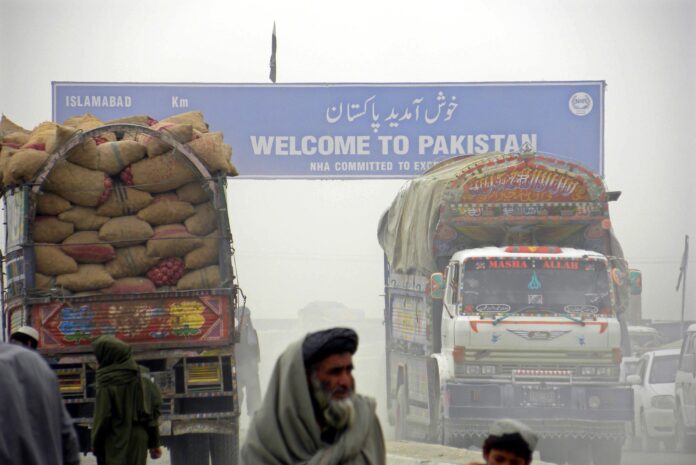ISLAMABAD: Pakistan and Afghanistan have already agreed on extending the Afghanistan-Pakistan Transit Trade Agreement (APTTA) for six months and 97% work on the APTTA has been completed, said the Ministry of Commerce secretary.
Speaking in a meeting of the Senate Standing Committee on Commerce, chaired by Senator Zeeshan Khanzada on Wednesday, he said all the trade-related issues with Afghanistan had been settled.
The secretary pointed to his visit to Chaman after the change in political setup in Afghanistan and said that there was no restriction on the movement of trucks to and from the neighbouring country.
There was movement of around 1,047 trucks on Tuesday, of which 557 crossed the Torkham border, he added.
“The system is working well at the moment and Pakistan continues to engage in trade activities with Afghanistan in accordance with the international law,” he said.
The secretary highlighted that Basmati rice was being exported by Pakistan and India, and progress was being made to register Pakistan’s Basmati rice in the European Union on the request of local lawmakers.
Khewra salt was produced in Pakistan only and the right to export it would now be protected under the Geographical Indication (GI) law, he emphasised.
Committee Chairman Zeeshan Khanzada said that export growth had remained stagnant for the past 10 years, but it was now depicting an uptrend.
The meeting was informed that the reasons for stagnant exports over the years included government’s policies of high consumption growth rather than exportable surplus, low labour productivity, low priority for e-commerce, IT exports and diversification of export markets.
It was highlighted that the government had made efforts to enhance exports through uninterrupted energy supply, extension in the incentive package, Export Finance Scheme, e-commerce policy and business facilitation through tax refunds of Rs47.5 billion.
Senator Mirza Afridi suggested that a separate policy should be framed for the garment sector.
Trade Development Authority of Pakistan (TDAP) Chairman Ahsan Ali Mangi briefed the committee on the role of the entity, its functions, structure and performance.
He said that the TDAP had reorganised its functions to provide specialised facilitation for all the stakeholders. “We are focusing on Look Africa Policy to capture markets of the African region,” he said.
The committee was told that the TDAP was organising training and information dissemination sessions for the Amazon model and the entity was in the process of selecting 100 small and medium enterprises for product development and support.
Committee Chairman Zeeshan Khanzada asked the TDAP to conduct next board of directors meeting in September.

























One of the main reason for stagnant export was due to fixed exchange rate policy of PML(N) which made imports cheap and exports expensive. Moreover this also resulted in another economic crises and hence PKR vs USD had to be suddenly adjusted to reflect the true value of PKR
However sustainable export growth is only possible post development of skilled HR in any field as value addition & thereby higher prices and exports is only possible with higher quality products. We need to move away from private label exports or exporting to Walmart / Target type stores. Similarly having brands in other sectors will also help in increasing exports.